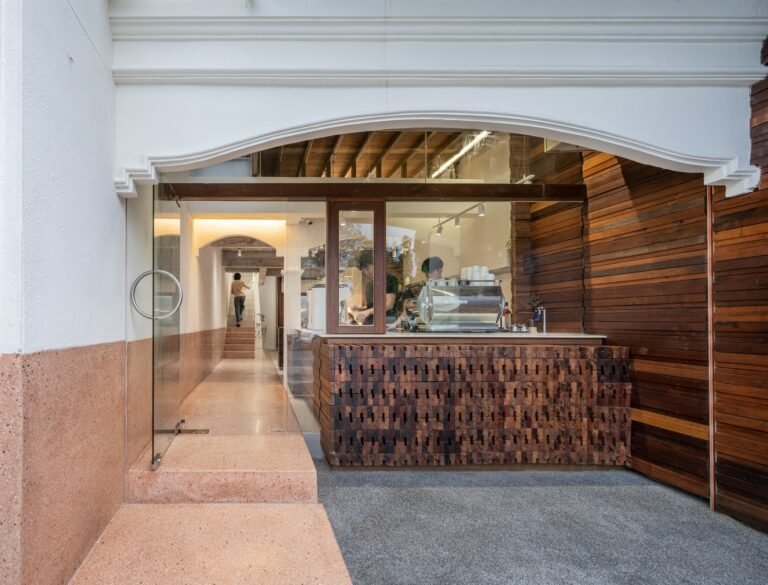any fin is possible as NTCRI bio-recycles fish scales into crafts
NTCRI transforms fish scales into art
As unimaginable as it might sound, milkfish can be more than just a food ingredient. The National Taiwan Craft Research and Development Institute (NTCRI) reveals a new Bio-degradable material made up of fish scale, inviting five Taiwanese designers to turn the underwater medium into crafts. After two years of research and implementation, the project initiated by the Craft Application with Material Experience Lab (CAMEL.) successfully adds some ‘umami’ flavor into the art world.
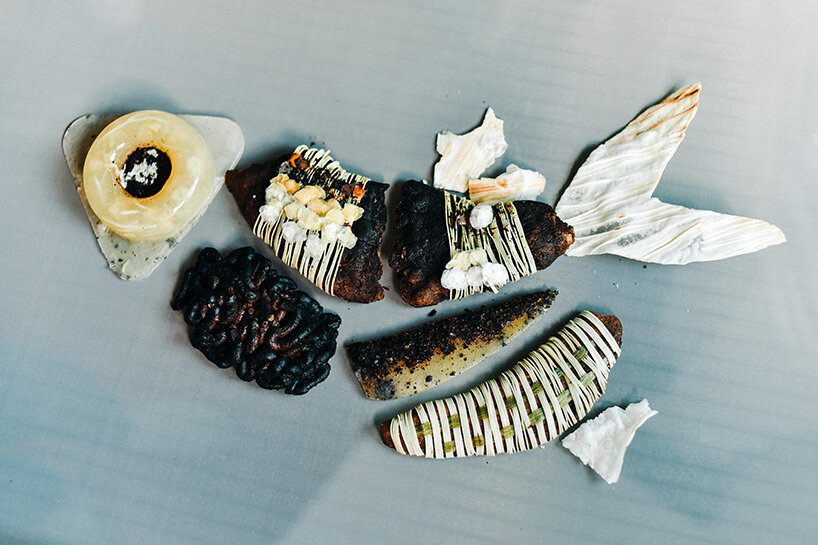
(above) ‘Taste Memory’ by Derick Yeh is a set of different snacks made of fish scales and spices
(banner) initiated by CAMEL., the discarded milkfish scale become NTCRI’s new bio-degradable material
all images courtesy of NTCRI
CAMEL. develops the bio-degradable material
The ingenious initiative of discarded fish scales is part of the experimental program that the Craft Application with Material Experience Lab (CAMEL.) aims to develop for NTCRI. The goal is to create a biomass material that is different from other technological ones, and to break through the limits of creative studios to explore the many possibilities of this material. In essence, the project integrates local culture, advanced technology, and international engagement to transform discarded items into biomaterials for craftsmanship, further establishing a new era of domestic, sustainable, and original craft culture in Taiwan.
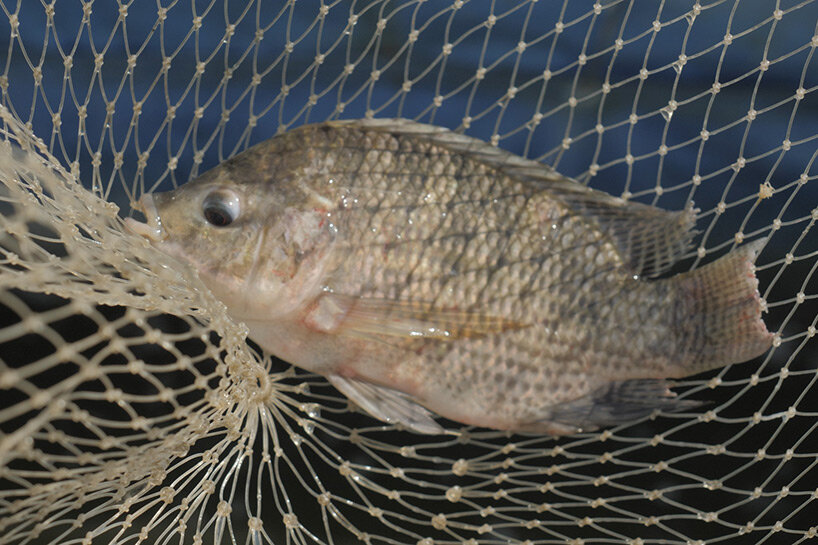
the transparent and durable scales of milkfish are a specialty in Tainan, Taiwan
The transparent scales go through 3D printing
An international collaboration program in 2020 marked the beginning of the Bio-recycling project. The transparent and durable scales of milkfish, a specialty in Tainan city, become the experiment subject. As the silver shiny fish is an indispensable part of people’s lives, CAMEL. seeks to accomplish the following: bridge innovative technology and skillful craftsmanship; introduce modern 3D printing and smart production technologies to the discarded fishery waste and traditional crafts; use advanced technology to create innovative materials and further bring in new craftsmanship; and most importantly, pave the way to sustainability for the craft materials in Taiwan.
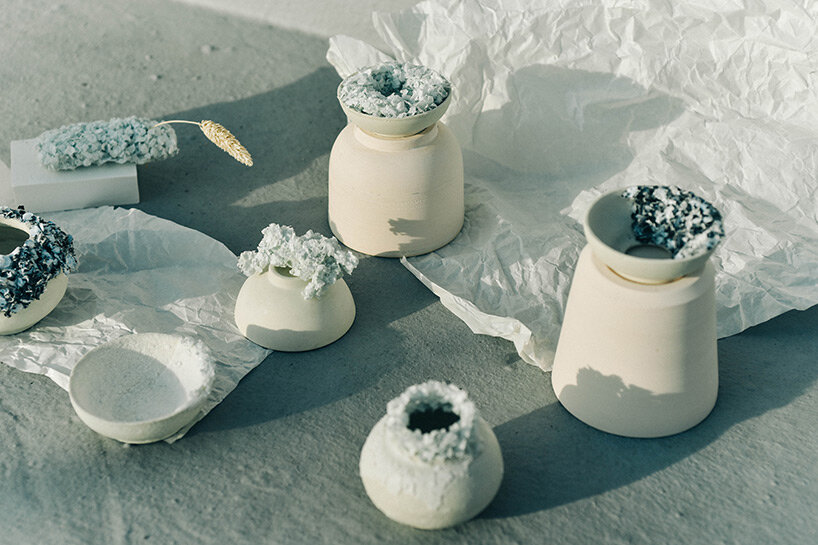
Peian Lin ‘s work is a ceramic sculpture that resembles bushes of flowers
The team had done extensive field research and found that almost every part of milkfish is edible, from its flesh, skin, intestines, to bones, except for its scales, which are often discarded as waste. From then on, the creators decided to work on reusability and also focus on the way artists use materials. The exploration was further joined by Materials Experience Lab, a Dutch research group led by Elvin Karana, with their innovative approach of Material Driven Design (MDD) comprising of four main steps: experiencing materials; building concepts; manifesting experience patterns; and completing design.
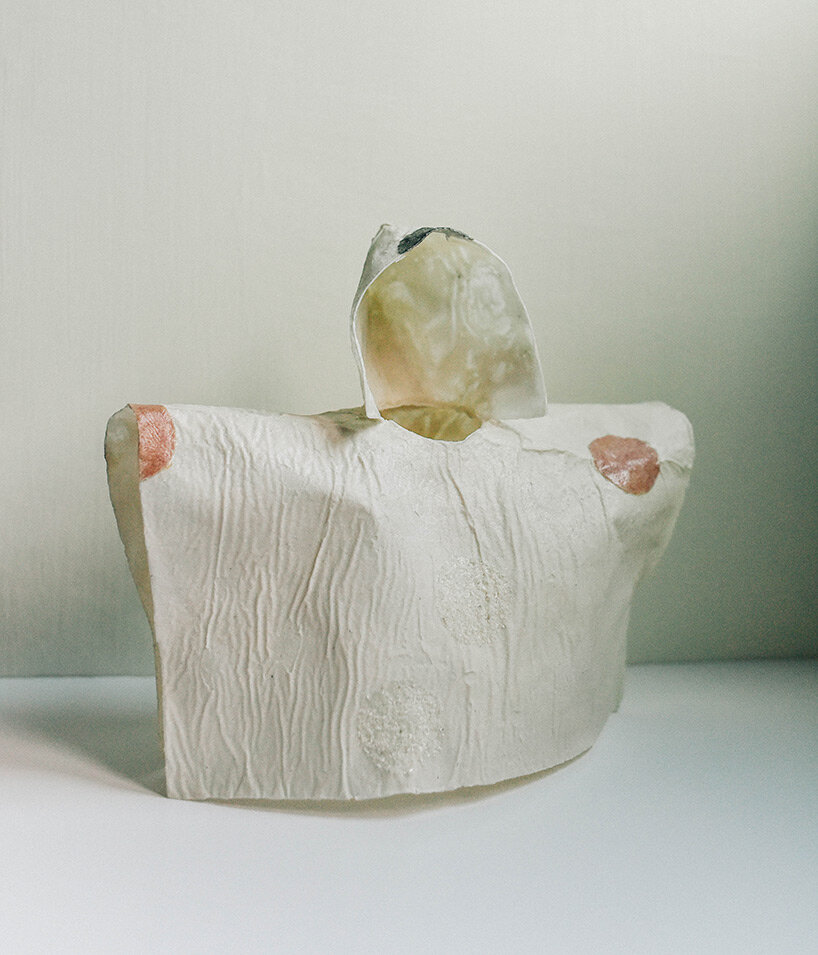
Artist Lee Tzu Ling mixes fish scales with mineral powder used for glue painting to create ‘Fish Clothes’
five creators Take UPON POTTERY, ART, FOOD, AND BUILDING MATERIAL
With remote instruction from Elvin (CAMEL), five creators embark on their journey of fish scale creation from the perspectives of pottery, art, installation, building material, and food. Artist Lee Tzu Ling mixes fish scales with mineral powder used for glue painting to create ‘Fish Clothes,’ a raincoat that melts in the rain; Lin Li Yu designs three pieces of mobile art called ‘The mobile of glitter wave/scale/piece’ to showcase the alluring luster and texture of fish scales; the work created by Lin Xi Yu is a special brick material made of fish scales and cement; and Peian Lin ‘s work is a ceramic sculpture that resembles bushes of flowers. Last but not least is ‘Taste Memory’ by Derick Yeh, a set of different snacks made of fish scales and spices that can be put together to form the shape of a fish.
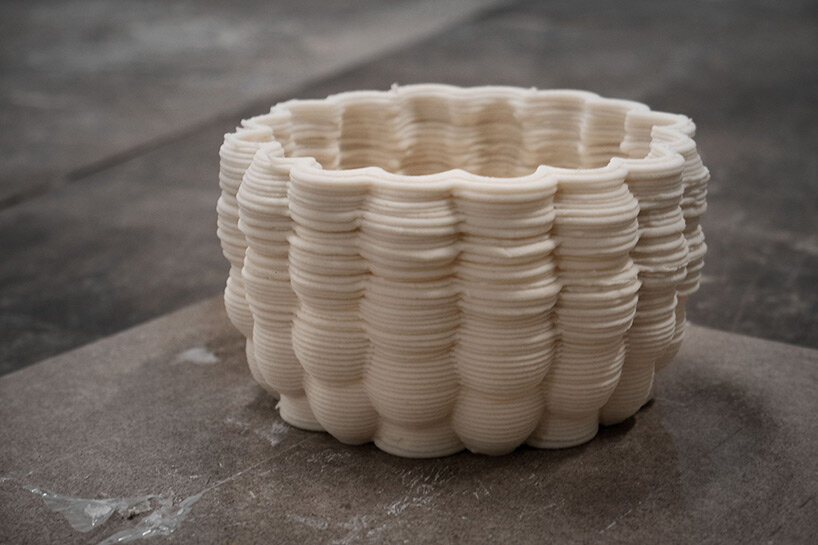
Li Jian You, professor at Institute of Applied Arts NYCU and consultant of CAMEL. creates ‘Scale Pot’ – a root-shaped planter
The pioneers of the project are two experienced creators that first came up with the astonishing creations. Li Jian You, professor at Institute of Applied Arts NYCU and consultant of CAMEL. specializing in digital production and design computing, was inspired by the common usage of fish scales as organic fertilizer and creates ‘Scale Soil’ – a hollow fertilizer brick. The designer also realizes the ‘Scale Pot’, a root-shaped planter. Both projects can release nutrients of fish scales into the plants through watering. As the founder of JIAJ and a Tainan-based designer, Jia Chen used 3D printing to create ‘The Existence of Non-existence,’ a basin with a metaphor of birth and death, and used her expertise in metalworking to design ‘+- / Jewelry,’ which can work as either a mold for accessories or packaging material.


